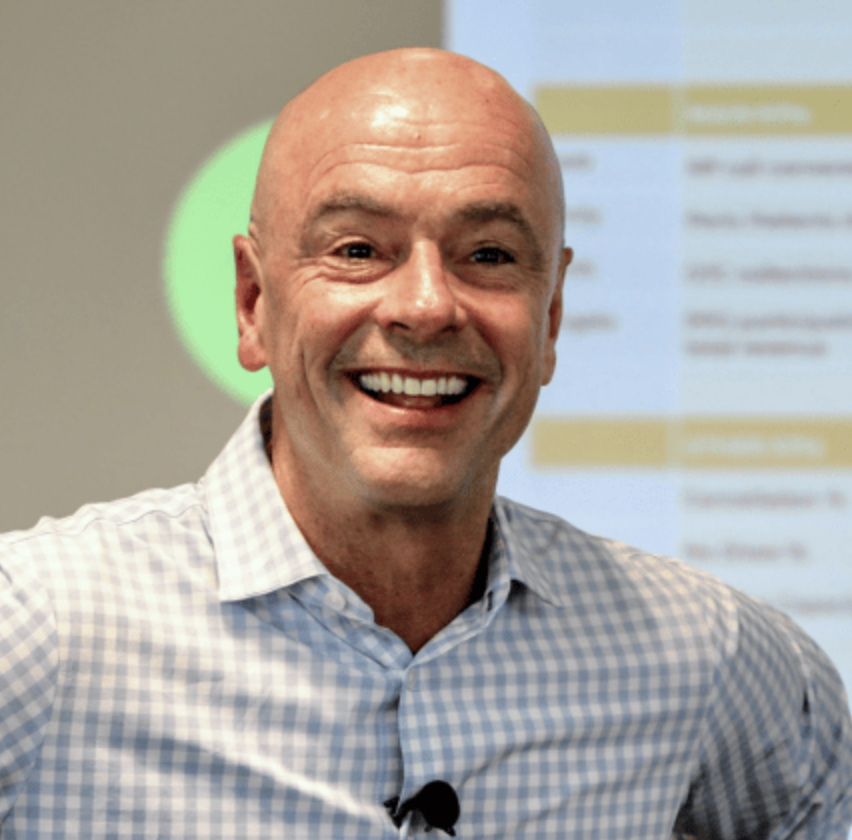Patrick Lencioni, in his book The Advantage, notes that nothing trumps organizational health in business except the lack of it, so you need to get your team in sync. Alignment isn’t something that just happens; it’s something that requires constant work, so what are some steps you can take to keep your team on the same page?
Have Clear Expectations
If you want to shrink down the chance of misalignment, you need to state clearly, “Here’s what I expect from you, and in return, here’s what you can expect from me.” We like to use a 3-3-3 system for managing expectations in the beginning:
- Team members must know how to do something after three days.
- They must be good at it after three weeks.
- They must be proficient after three months.
In this manner you can help even out those moments where expectations and reality don’t meet, helping to avoid or minimize conflict down the road. When you have conflict that remains unresolved, it becomes a crisis, so give your team a clear line of sight on how to proceed.
Make it a Habit
Each week you need to devote time to making sure your team is in alignment. Think about how a marriage works—if the parties aren’t on the same page, it’s not going to work. The same holds true with your practice. Just like spouses need date nights to talk, get on the same page, and connect, your practice needs alignment time each week, so set aside some time where you can have a dialogue with your team.
Check in Regularly
I see so many practices that don’t do a lot of check-ins with their team because they don’t have enough time. You have to ask yourself, “Would I rather make time for check-ins, or make time for problems?” You can either be the problem or the solution, not both. Bear in mind that this is not an employee review; you’re not discussing anything with a dollar attached to it or evaluating their performance. This is a chance for team members to bring their own talking points to you and discuss what they’re successful at, where they need more support, their weekly highlights, or areas of opportunity. It’s a time when the doctor can stop talking and let the team member say what they need to say and receive the acknowledgment or support they need to be successful in their role. It allows you to resharpen the expectations and make sure the lanes are set up the way they should be. You want to create a workplace where your team members want to be, so lean in and show them you care; it will transform the relationship you have.
Follow Your Values
Kirk says that “All roads lead home to core values,” because they trickle down into everything the practice does. Make sure your team understands how important they are and recognize when someone exemplifies those values. When you call them out to the practice you reinforce that positive behavior and encourage it in others. It’s when someone fails to align with your values that problems arise. Just one person who’s not in line with your core values can prevent your team from having the energy and buy-in that you hope for. So when your team is falling short of your expectations, ask yourself if it’s because they’re not aligned with your core values. If that’s the case, then you can’t let fear keep you from addressing the problem. Too often leaders are afraid to call out team members because they fear losing someone they see as irreplaceable, but the truth is you’re taking on a huge pain that’s far less beneficial than getting aligned. The practice suffers when you have someone who’s not a good fit with your values, and it doesn’t matter how valuable you feel they are. No one is irreplaceable—the practice will thrive, and the team will be far healthier without someone who doesn’t fit your core values. Keeping them around will keep your team from aligning, because “Nothing,” according to Kirk, “irritates or frustrates a great team member more than when you tolerate a bad one.”
You’re going to spend 30% of your life at work, so you need to do everything you can to make it a positive experience. And for that, you need two things: core values that everyone believes in, and alignment. When you have a team that’s on the same page with core values, you can beat anyone and dominate any industry. When someone is not aligned with your values, it’s time to have a conversation with them. You want a team that works well together, so you need team members who value the same things. Reach out to the coaches at ACT and learn how you can create a system of core values and find team members who believe in them just as much as you. Together you will create a Better Practice, and a Better Life!
Courtney Dalton is a Lead Practice Coach at ACT.
Kirk Behrendt
Kirk Behrendt is a renowned consultant and speaker in the dental industry, known for his expertise in helping dentists create better practices and better lives. With over 30 years of experience in the field, Kirk has dedicated his professional life to optimizing the best systems and practices in dentistry. Kirk has been a featured speaker at every major dental meeting in the United States. His company, ACT Dental, has consistently been ranked as one of the top dental consultants in Dentistry Today's annual rankings for the past 10 years. In addition, ACT Dental was named one of the fastest-growing companies in the United States by Inc Magazine, appearing on their Inc 5000 list. Kirk's motivational skills are widely recognized in the dental industry. Dr. Peter Dawson of The Dawson Academy has referred to Kirk as "THE best motivator I have ever heard." Kirk has also assembled a trusted team of advisor experts who work with dentists to customize individual solutions that meet their unique needs. When he's not motivating dentists and their teams, Kirk enjoys coaching his children's sports teams and spending time with his amazing wife, Sarah, and their four children, Kinzie, Lily, Zoe, and Bo.
RECENT POSTS
995: Crisis Coverage Planning – Paul Sletten
January 14, 2026
994: Metric Mondays: Profitability – Miranda Beeson
January 12, 2026
Data Snapshot: Average Treatment Presented
January 09, 2026
992: What You Don't Know About Shared Network Agreements in Dentistry in 2026 – Sandi Hudson
January 07, 2026
Your Words Shape Your Momentum - Choose Wisely
January 05, 2026
991: Metric Mondays: Overhead – Lab Percentage – Robyn Theisen
January 05, 2026
The Three Roles That Define Dental Practice Success
January 02, 2026
990: Hiring the Wrong People? You Might Be Missing This One Crucial Step – Carlie Einarson
January 02, 2026
989: Master the Metrics – Simple Data, Big Impact – Robyn Theisen
December 31, 2025

